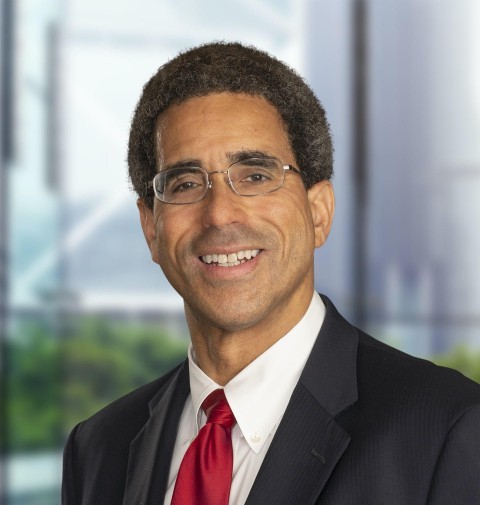Adapting to shifting workplace

By Dan Eaton San Diego Union-Tribune
Labor Day represents the end of summer for many, but the original intent of the holiday was to honor and celebrate the American worker, with labor and trade unions often figuring prominently in celebrations. Now, however, the changing employment landscape is giving rise to a new type of worker. In a recent speech, Hillary Clinton questioned the “gig economy” which creates opportunities and unleashes innovation while also raising concerns about workplace protections. Here, a San Diego State business ethics lecturer and attorney writes about the changes in the work force.
Is the same spirit of independence that we celebrate on the anniversary of the birth of our nation transforming the meaning of our annual celebration of the work we do? Have we become an “Uber nation” in which an increasing number of workers are self-employed, whether by performing “gig” work in such sharing economy platforms as ride-sharing company Uber or by providing our services to a range of employers by registering with temporary staffing firms?
The evidence is not as clear as the outsized attention the “gig economy” has received in the business press. In July, for example, The Wall Street Journal reported that there is no solid proof of a gig economy revolution. Citing U.S. Labor Department statistics, the Journal reported that “the share of Americans who are self-employed and unincorporated has slowly declined over the past decade, to about 6.6 percent of workers today, down from as high as 7.7 percent in 2005 and as high as 8.5 percent in the mid-1990s.”
The conclusions in that report have not gone unchallenged, with much of the controversy arising from what to include in the definition of the gig economy. Larry Katz of Harvard and Alan Krueger of Princeton have pointed to the little-noted rise in those filing tax forms indicating income received from self-employment to suggest that this segment of the workforce is being undercounted.
Regardless of what the true numbers are, “What is not in dispute,” wrote Stanford Business Professor Jeffrey Pfeffer, in a Fortune.com essay decrying the rise of the gig economy, “is that the proportion of contractors, freelancers and part-time, contingent workers in the U.S. has been increasing and has been for a long time.”
That rise is largely because employers have gotten wary of adding permanent staff only to have to lay people off during down economic times, which can be expensive and is always disruptive to employee morale. Using contingent workers in whatever form gives companies the ability quickly to increase and to reduce staff in response to shifting economic conditions. Flexibility, then, is the common motivation for many individuals who take such temporary jobs and for most companies that provide those jobs.
Is that cause for celebration or cause for alarm? Millennials may answer that question differently from baby boomers. USA Today recently reported that the “growth in gig economy workers may reflect a shifting workplace ideal for many university students looking for employment post-graduation.” Numerous studies have found that millennials change even “permanent” jobs far more frequently than previous generations did.
Yet one worker’s prized scheduling flexibility is another worker’s despised income instability. For every anecdote of a worker expressing appreciation for having hundreds of “bosses” instead of just one, one can find a contrasting anecdote of a worker expressing resentment from getting too little in the way of pay and protection.
The legal regulation of work is struggling to adapt to this new kind of work. Just last month, a sharply divided National Labor Relations Board made it easier for non-union workers sent by temporary staffing agencies to unionized workplaces to obtain the rights of their unionized co-workers. Pending federal lawsuits against Uber and competing rise-sharing service Lyft will decide in coming months whether drivers are employees rather than independent contractors.
The answer to that question matters because employees have certain rights and protections that independent contractors don’t. It also matters because it is not clear that the leading sharing economy platforms could function, or at least function nearly as profitably, if they were required to give their registered service providers all of the rights and protections that are given to employees, such as overtime pay and workers’ compensation.
Technology has affected commerce in profound ways; it was inevitable that technology would affect labor in profound ways, too. The app that amazon.com makes available to its customers to buy merchandise at any time of day or night is a close technological cousin to the app Uber uses to alert available drivers at any time of day or night that someone needs a ride.
The current categories and concepts in the law of the workplace may need to undergo an expansion, if not a revolution. The tools that courts have to address the emerging challenges were developed in a different age, with different assumptions about the nature of American work and seem inadequate. Legislators at all levels may have to respond.
But any legal response – whether legislative, judicial, or regulatory – will have to be undertaken with the same care and ingenuity that gave rise to these new forms of the age-old marketplace through which labor is exchanged for money. Regardless of the changes that are in the air, the essential value in celebrating that marketplace will endure on its own terms. So Happy Labor Day, indeed.
Eaton, an instructor at the SDSU College of Business Administration, is a partner with the San Diego law firm of Seltzer Caplan McMahon Vitek, where his practice focuses on defending and advising employers. Twitter: @DanEatonlaw
